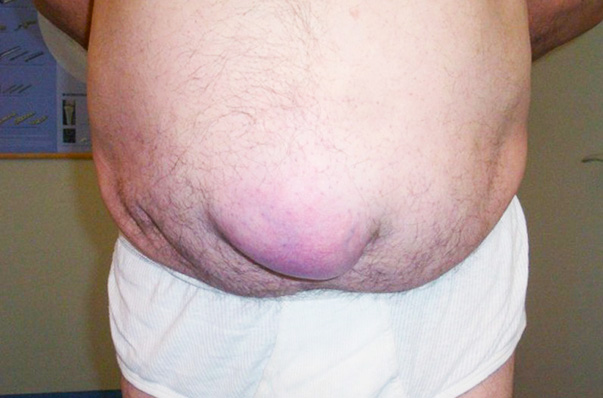
What is Hernia? Causes and Symptoms: Hernia is a displacement of an organ through a cavity wall in which it is normally located. Usually involving the abdominal and the groin regions, hernias of the groin are the most frequent type of the condition. Other kinds of hernias include hiatus, incisional, and umbilical. The condition brings pain, which may interfere with a person’s daily activities. The following are the causes, signs and symptoms, and home remedies for hernias.
Causes
Hernias have various causes. According to Health Line, muscle weakness and strain leads to the condition, which can progress quickly or over a long period of time. As per the publication, muscle weakness may be due to age, inability of abdominal wall to heal properly in the womb, chronic coughing, and damage from injury or surgery. On the other hand, factors that may strain the body and lead to hernia include persistent coughing or sneezing, sudden weight gain, ascites or presence of fluid in the abdomen, heavy weight lifting, constipation and straining during defecation, and pregnancy, which puts pressure on the abdominal area.
Signs and Symptoms
Hernias present different signs and symptoms. According to EMedicine Health, these can range from a painless lump to a painful, tender, and swollen tissue protrusion that cannot be pushed back to the abdomen. Hernias may also manifest abdominal or pelvic pain. Some hernias, such as the strangulated type, presents pain, tenderness, and bowel obstruction symptoms like nausea and vomiting. Fever may or may not be present. Depending on the anatomical presentation and nature of the hernia, the condition may also become a surgical emergency.
Home Remedies
Hernias can be resolved with medications like antacids, H-2 receptor blockers, as well as proton pump inhibitors. Surgery is also a viable option if the condition grows larger and causes pain. However, home remedies also serve as non-pharmacological and non-surgical approach to the condition.
Exercise
One remedy for hernias is exercise. According to Home Remedies for You, the person may engage in mild exercises that target the core or the abdominal muscles. As per the publication, these exercises help reduce excess body weight; as a result, pressure on the abdominal muscles will be reduced. While exercise helps a person with hernia, strenuous exercise or heavy lifting should be avoided. It is vital to discuss exercise programs with the doctor and it is advised not to exercise immediately after eating.
Warm Water
Another remedy for hernia is warm water. According to Top 10 Home Remedies, drinking warm water plus some exercises is a great approach to manage hernias. As per the publication, the person drinks a glass of slightly warm water or at room temperature, as it helps relax the stomach muscles and the diaphragm and put some weight in the stomach. Then, the person stands up and lifts his arms straight out from his sides and bends his elbows so that his hands touch his chest; this helps stretch the diaphragm and open up the hiatus. Then, the person rises up on his toes as high as possible and drops down onto his heels several times in a row; this helps the water weight pull the stomach down. Finally, the person takes a few short and quick breaths with his mouth open for about 15 seconds while standing with his arms up; this tightens the diaphragm back up and closes the hole.
Castor Seed Oil
Hernia can also be managed thru castor seed oil. According to Organic Facts, it has been used for different digestive problems, since it has the ability to coat the stomach and protect it from threats like high acid levels. As per the publication, it can help relieve the pain due to the condition.
Hernia involves deviation in the anatomical placement of some organs in the body, causing pain and adverse impact to a person’s activities of daily living. Thus, it is vital to seek medical consult from a physician for proper assessment, planning, intervention, education, and evaluation.
Post a Comment